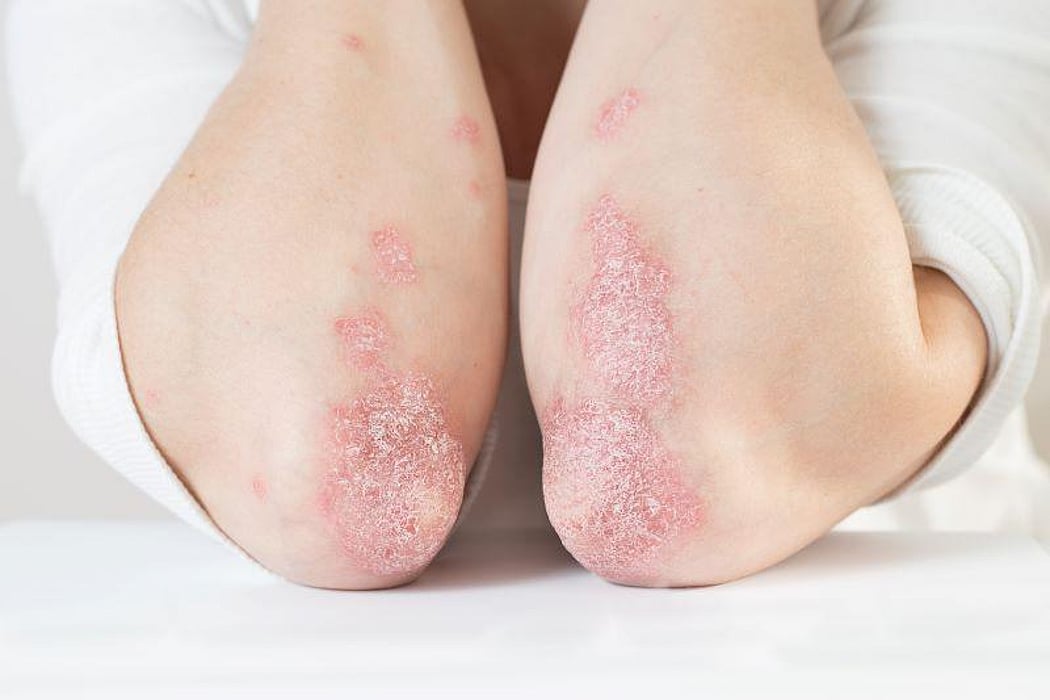Risk for Ectopic Pregnancy Increased for Women With Psoriasis

WEDNESDAY, May 18, 2022 (HealthDay News) -- Women with psoriasis have a significantly increased risk for ectopic pregnancy (EP), which is highest for those with moderate-to-severe psoriasis, according to a study published in the June issue of JAAD International.
Cæcilie Bachdal Johansen, M.D., from the University of Copenhagen in Denmark, and colleagues examined the association between psoriasis and adverse pregnancy outcomes (APOs) in a nationwide register-based case-control study involving data collected from 1973 to 2017. Cases were APOs, including spontaneous abortion, EP, intrauterine fetal death, and stillbirth; controls were singleton live births.
The researchers included 42,041 APOs and 449,233 controls (8.56 and 91.44 percent, respectively). The only APO that was statistically significantly associated with psoriasis was EP (odds ratio, 1.34). Women with moderate-to-severe psoriasis had the highest odds ratio for EP (odds ratio, 2.77). Compared with those without psoriasis, women with moderate-to-severe psoriasis had a 2.48 percent higher absolute risk for EP (3.98 versus 1.50 percent).
"As EP is the leading cause of maternal morbidity and mortality in the first trimester of pregnancy, our findings call for particular care for women of reproductive age with psoriasis, that is, informing sexually active patients to seek emergency gynecologic evaluation in case of lower abdominal pain, unplanned absence of menstruation, and concurrent light vaginal bleeding," the authors write.
Several authors disclosed financial ties to the pharmaceutical industry, including UCB Pharma, which funded the study.
Related Posts
Proportion of Pediatric Mental Health-Related ED Visits Increasing
WEDNESDAY, May 3, 2023 (HealthDay News) -- The proportion of pediatric emergency...
Diabetes Exposure in Utero Linked to Neurodevelopmental Disorders
WEDNESDAY, Jan. 4, 2023 (HealthDay News) -- Exposure to diabetes in utero is...
Delay in Time to Antibiotics Permissible for Inpatient Neutropenic Fever
MONDAY, Jan. 9, 2023 (HealthDay News) -- For patients with hematologic...
More Olive Oil May Bring Longer Life: Study
https://consumer.healthday.com/1-11-2656217153.html Credit: HealthDay
